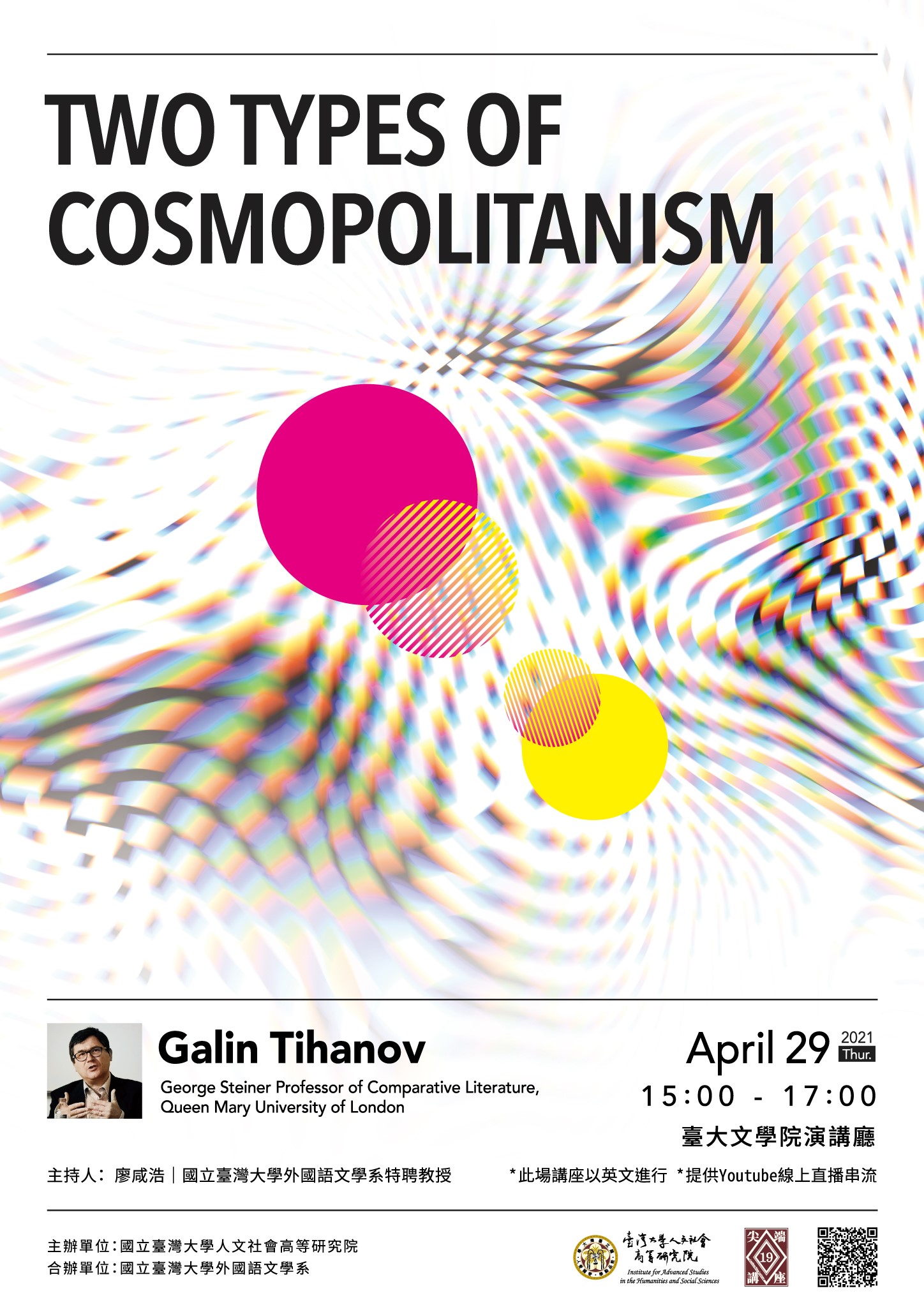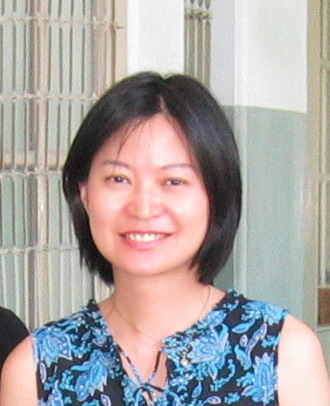臺灣大學人文社會高等研究院與外國語文學系將於4月29日(週四)15:00-17:00,合辦第十九場尖端講座,此講座為國際學術網路直播講座,將開放現場實體講座+同步Youtube線上直播,邀請Galin Tihanov (George Steiner Professor of Comparative Literature Queen Mary University of London)跨國連線主講,主題為Two Types of Cosmopolitanism,由本院院長暨臺大外文系特聘教授廖咸浩主持,本演講為全英文進行,內容將精采可期,歡迎大家踴躍線上/實體參與講座報名。
請有意願參與網路講座/親臨會場的觀眾填寫報名表單,以便統計人數,將於開會日期前一天寄出視訊會議連結到登記的觀眾信箱,屆時可線上參與會議,謝謝合作。表單連結如下:
https://docs.google.com/forms/d/e/1FAIpQLSdkMEftVCI9SP6WICSuh-zH4UKtv4jIUTIHdZq2scYfbEzNag/viewform
【活動資訊】
尖端講座系列第十九場
主題:Two Types of Cosmopolitanism
主講人:Galin Tihanov(George Steiner Professor of Comparative Literature at Queen Mary University of London)
主持人:廖咸浩(國立臺灣大學人文社會高等研究院院長)
時間:2021年4月29日(四)15:00-17:00
地點:臺大文學院演講廳(文學院一樓)+同步Youtube線上直播
報名連結:https://docs.google.com/forms/d/e/1FAIpQLSdkMEftVCI9SP6WICSuh-zH4UKtv4jIUTIHdZq2scYfbEzNag/viewform
主辦單位:國立臺灣大學人文社會高等研究院
合辦單位:國立臺灣大學外國語文學系
主講人:
Galin Tihanov is the George Steiner Professor of Comparative Literature at Queen Mary University of London and recurrent invited professor of intellectual history at the Higher School of Economics (HSE) in Moscow. He is the author of five books and (co)editor of eleven volumes of scholarly essays. His most recent book is The Birth and Death of Literary Theory: Regimes of Relevance in Russia and Beyond (2019) which won the 2020 AATSEEL Prize for “Best Book in Literary Scholarship”. Tihanov has held visiting appointments at universities in Europe, North and South America, and Asia; his work has been widely translated. He is elected member of Academia Europaea and co-winner of the 2012 Efim Etkind Prize. He is currently completing Cosmopolitanism: A Very Short Introduction, commissioned by Oxford UP.
摘要:
In our increasingly interconnected world of global risks and opportunities cosmopolitanism has become a catchword, a slogan seen and heard from the covers of popular magazines (The Cosmopolitan) to the offices of politicians. It is to this intensely contested and riveting idea that I turn to my lecture. The lecture spans intellectual history, literature, philosophy, and other areas of the humanities and social sciences. In the first part, I identify two different types of cosmopolitanism and seek to define them; in the second part, I trace their intersections and contextualisation in the work of two exilic thinkers of the first half of the twentieth century, one of them a trenchant critic of cosmopolitanism.



